The Netherlands Study Visit on Enforcement 2023
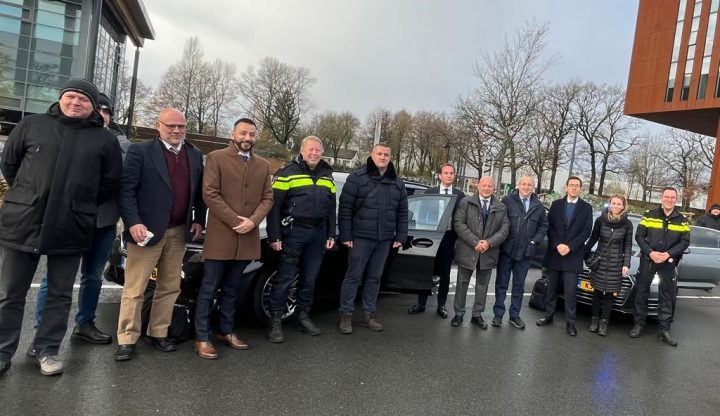
A delegation with representatives from the Croatian Ministry of Interior and the Portuguese National Road Safety Authority (ANSR), accompanied by ETSC, travelled to Apeldoorn and Amsterdam on 29-30 November as part of a study visit on the topic of traffic enforcement.
The visit was co-organised together with the Ministry of Justice and Security and supported by the Dutch Police and the Public Prosecution Office, as part of the EU Road Safety Exchange project. It included on-the-ground police demonstrations and discussions with the main partners involved in the enforcement chain.
The first day was hosted by the East Netherlands Police Unit headquartered in Apeldoorn, specifically the Regional Operational Collaboration Service (DROS).
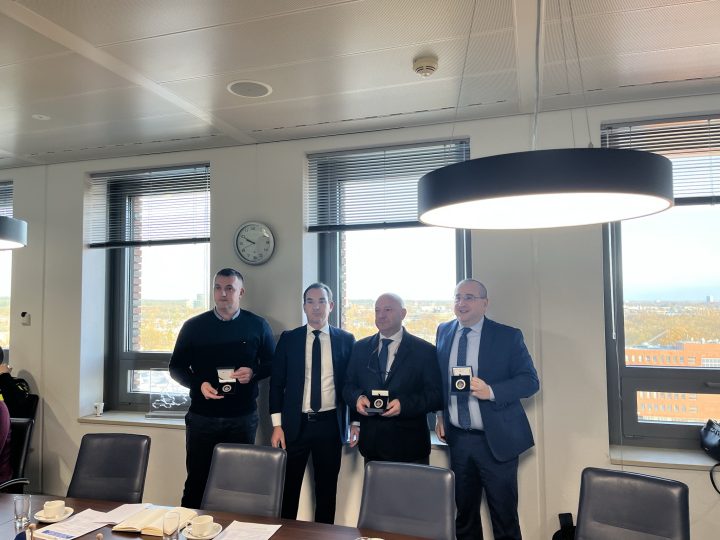
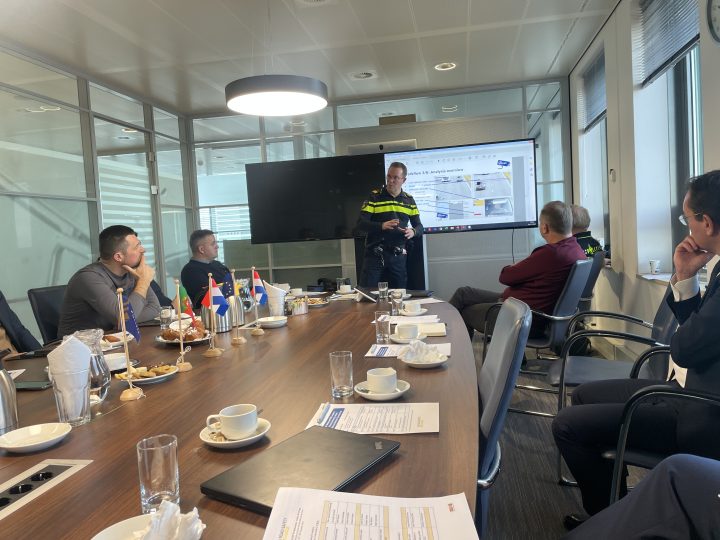
Two presentations, one on the MONO-cam, which detects handheld phone-use by drivers and was developed in the Netherlands, and one on the latest generation of video surveillance vehicles, kick-started the programme.
Later in the day, the group participated in several demonstrations on the ground. Each participant experienced first-hand the functioning of a speed camera mounted on an unmarked latest-generation car moving in traffic and received in-depth explanations of the technologies used by the police officers on a mission.
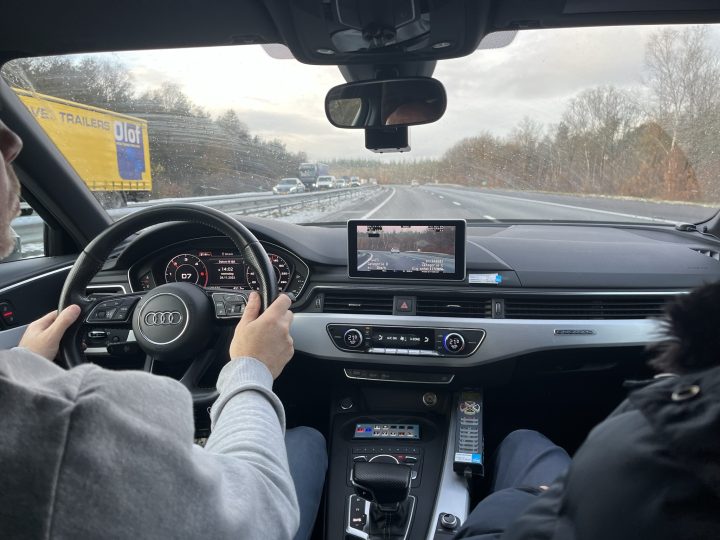
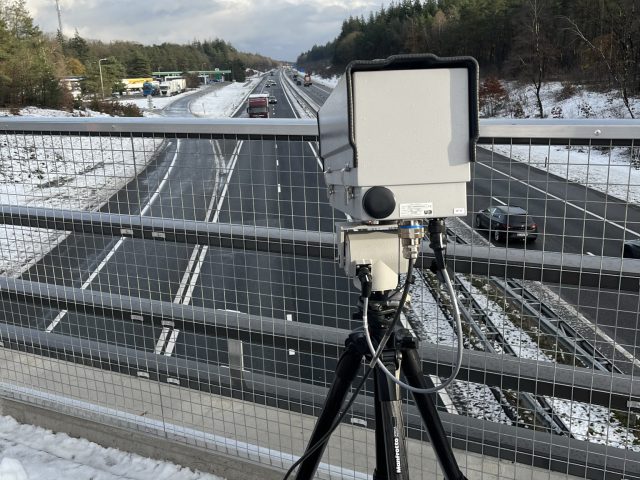
A demonstration on the functioning of the Mono-cam, the innovative Dutch technology using AI for detecting hand held devices behind the wheel was also in the programme. Several drivers were spotted by the camera while using their mobile phones and the police officer on the ground verified the offence.
.
The second day focused on an in-depth theoretical explanation of the ANPR (automatic number plate recognition) framework in the Netherlands and an overview of automated speed enforcement with camera systems.
Representatives from Central Netherlands Police presented their work with an extensive camera network within the country used to address criminal activities and road safety. Discussions with colleagues from Portugal and Croatia centered on technological developments and their usage to improve enforcement.
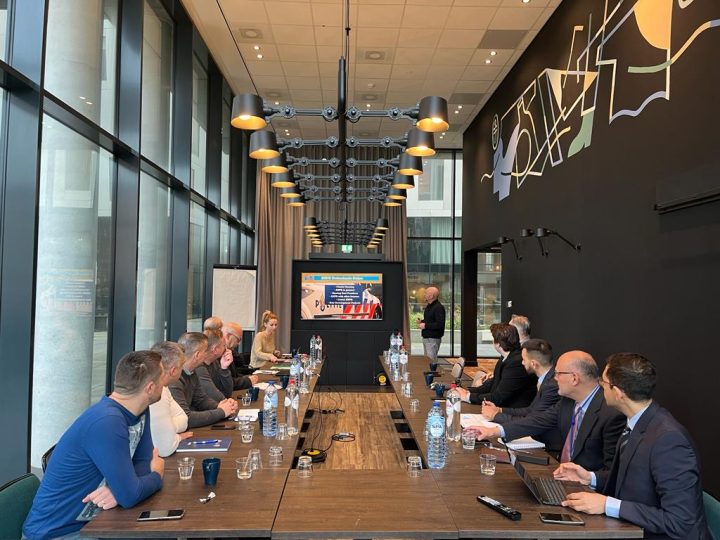
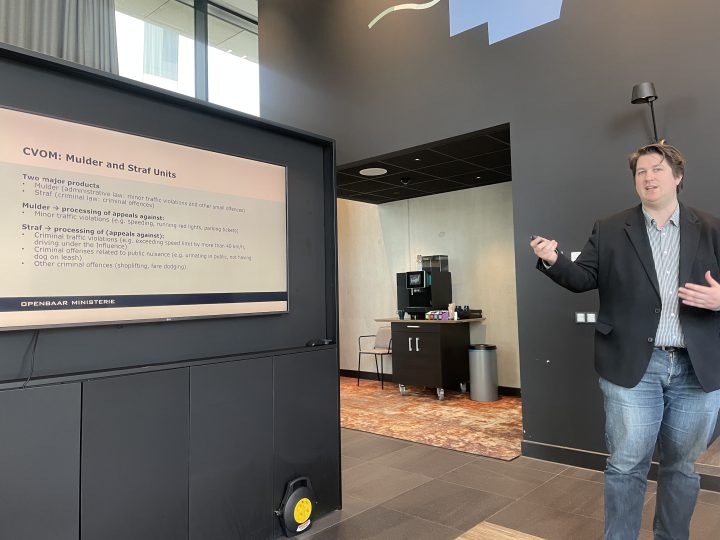
The final presentation focused on the Public Prosecution Office’s work in the Netherlands, responsible among other things for the automated speed enforcement process, the development of the road safety camera network, and procedures to ensure efficient follow-up on infringements.
.
The Portuguese and Croatian delegations were very interested in implementing similar systems to combat the increase use of mobile phones behind the wheel and steps were made in exchanging contacts and starting discussions on importing the technology for pilots in the partner countries. All parties appreciated the exchange of knowledge in improving enforcement of traffic law and road safety and the role of such exchanges in pushing forward progress and finding solutions to common issues.
.